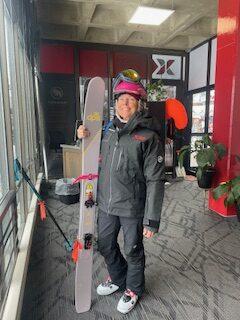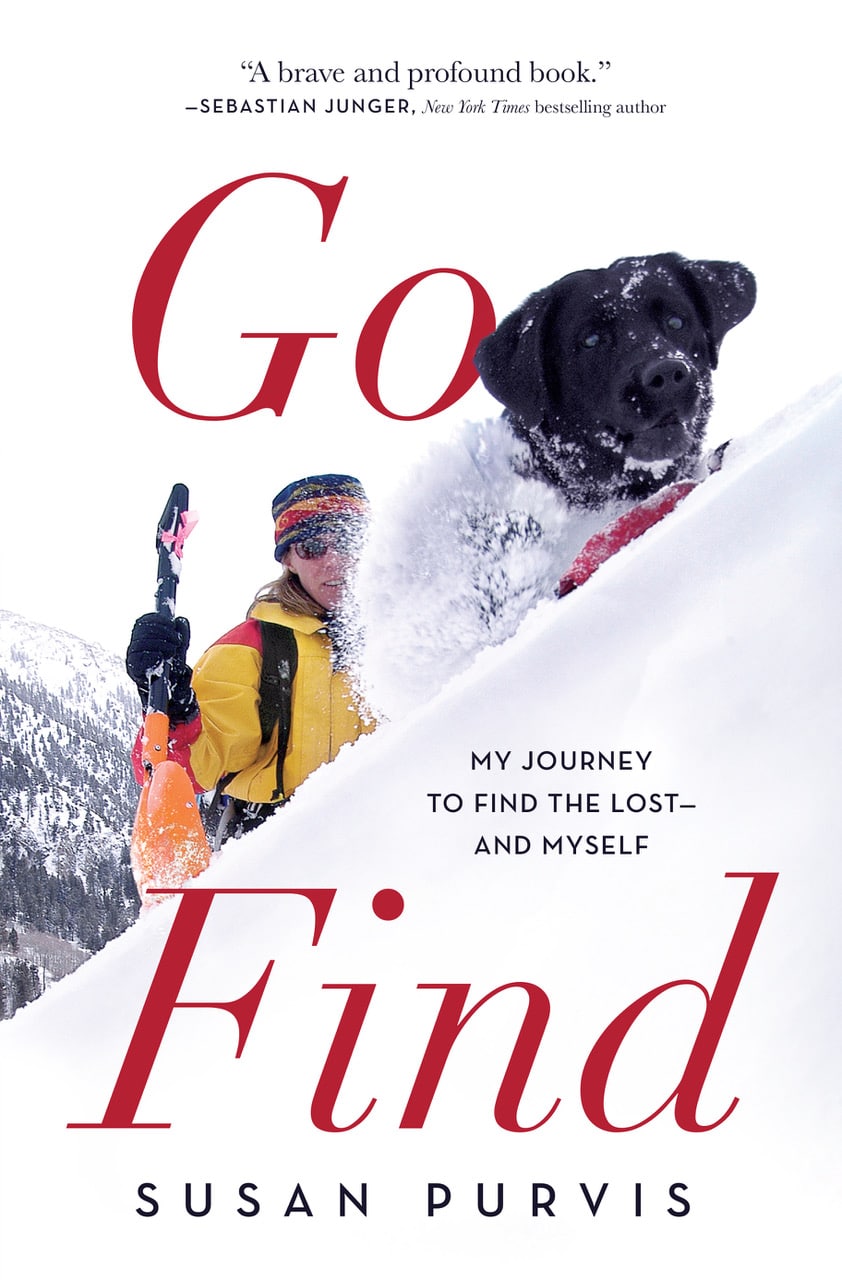She Rescues the Dead. Can she rescue her voice?
As seen in “Find Your Voice, Save Your Life”
by Susan Purvis
I’m over two gin and tonics into my flight when I confess those words to a middle-aged Latino man sitting next to me inside the dimly lit cabin of the 747. I didn’t know him from Adam. Three-quarters of the way across the ocean from Miami to the Dominican Republic, my subconscious starts to bubble out like froth from a shaken bottle of champagne.
The conversation begins when the man leans into my shoulder as I doze off and asks with a charming accent, “Why would a pretty blonde be flying to Santo Domingo all alone on a Sunday night?” He shows his palms, an open inviting gesture.
I rock away from him, rattling the ice cubes in my glass, stalling while I think how to answer, or even whether to answer.
“It’s none of your fricking business, you douche-bag pervert. Leave me alone,” I want to scream.
But I don’t.
I am accustomed to Latino men whistling and shouting crude comments at me. I’ve learned to ignore their cackles.
Just like I’ve learned to ignore the relationship issues with my husband Doug. I’ve recently been making excuses not to join Doug in the Dominican Republic to which I’ve been commuting from Colorado for the past fifteen years. My husband and I are exploration geologists and we get hired by international mining companies to search for gold. But over the past eight years, Doug has gotten used to me working from our home in Colorado. I have too. I started my own wilderness medical business teaching students how to save lives by rescuing people from dangerous situations. I have trained my puppy, Tasha, to do search and rescue, too.
Is it my husband or the Dominican job I’m avoiding?
I grit my teeth, thinking about how much I hate commuting to this god-awful place and leaving Tasha, behind. Tasha and I have been partners for ten years now and, increasingly, I feel like she’s the only one who really gets me.
Tasha’s my true love.
This morning, I’ve dumped Tasha on the stairs of my friend’s house. Her dark-brown eyes watch me leave, telling me how abandoned and betrayed she feels. When I say goodbye, she lays there, doesn’t even lift her head from her paws or thump her tail.
Is that how my husband feels when I leave him to pursue my search and rescue work at home in Colorado?
Tasha knows my routine; the blouse, the roller bag, the briefcase, the clackity-clack of my dress shoes, her bed placed in the corner of some friend’s house.
I’ve dumped her twenty-five times or so. Now, I won’t see Tasha for a month. My chest tightens as I remember her pouting eyes and then the faces of the recent victims she found.
I should be elated about our successes the past few days, the successful completion of our two most important search missions. Everyone called us heroes.
One involved a boat ride to look for a kid who’d drowned in a lake and the other, a helicopter transport to a thirteen-thousand-foot Colorado mountain to search for an avalanche victim. When I told my husband about the helicopter ride to 13,000 feet, he said, “Over my dead body. It’s too dangerous. Do not risk your lives for a dead guy.”
Tasha and I went anyway.
My husband is pissed and I dread tomorrow for so many reasons. He and I are partners, but our inability to communicate is buried so deep, I’m afraid to look at our relationship for fear of what other dead things I might find.
I drain the last of my cocktail and gesture to the flight attendant for another as I ponder my role as wife and/or search-and-rescue partner.
I crack open the new bottle of gin and pour it over the ice. I try to dismiss from my mind’s eye the images of the kid ‘s lifeless body stuffed face down in a body bag, and the dead man’s distended, red belly frozen in avalanche debris, what I saw after a three-person rescue team started chipping him out of the snow with an ice ax. My tears don’t relieve the weight pressing on my chest.
As I drink, the cubes clink over the top of the glass and slide down the front of my shirt. My seatmate and I watch the ice slip down my blouse and onto my pants.
The man reaches towards me with his right hand, brushing his fingertips down my bare arm. “I still think you’re an agent,” he says lowering his voice.
This guy with his piercing stare, romantic Spanish accent, and dark-brown eyes momentarily melts me in my seat. I’m dropping the search-and-rescue warrior shell, the protective armor, that makes me invincible. Is it the gin?
I smirk, resting my weary head on the backrest. I avoid his seductive eyes and squint at the seat in front of me and tease. “Like, what kind of agent?”
“A Secret Service agent.”
“Really?” My lips quiver. “Good guess.” I shake my head. “But, no.”
“FBI?”
“Nope.”
“You are nothing like the women in Santo Domingo, Nuev-o York, or Me-am-e.” The words roll off his tongue making my heart speed up. “You seem mysterious to me, that’s all.”
“Funny, I’ve heard that before.” I cock my head to the side. “I’ve trained Secret Service agents, the FBI, and the ATF. I’ve even trained the men who protect George W’s family, but I don’t carry a badge.” My eyebrows arch high. “You’re pretty good. So there, I’ve answered all your questions.” He flicks his wrist at my glass. “Chica. Tell me what you really do?” His accent on the word do lingers, encouraging me to reveal something, anything.
I wish he’d ask me how I feel. I can’t answer the question clearly for myself.
I exhale, blowing a curly blonde hair out of my eyes. My heels bounce up and down on the floor.
The alcohol suppresses my exhaustion and urge to cry. Still, I feel like a wilted flower, even though I’m only forty-three.
“You really want to know what I do?” I exhale fumes of gin.
Another confession tumbles out. “I’m scared shitless. My husband is working in the middle of the country. He’s waiting for me. My husband. Did you hear me? But, he treats me more like an employee than his soul mate. We rarely kiss.” I stumble for words. “Not the lovers we use to be.” I throw back my drink. “And tomorrow, in the sizzling heat, probably a hundred and twenty, I’ll look at rocks drilled from deep underground with a hand lens for itty-bitty specs of gold. I have a mile of core stacked up under a tarp that I have to look through.
“I’m so over this job. The heat. The lack of purpose. I’m just doing it so I can support my search-and-rescue habit and placate my husband. I don’t even know who he is, we are, anymore.” The last words stick in my throat, choking me.
The man interrupts, “You look for gold?” His eyes widen. “There’s gold in my country?”
“Yes, I work with my husband. That’s how we make money. But, I’ve been on the road teaching and rescuing more than I’ve been down here. That’s what I really love to do.”
I eye the gold chain around his neck. “And, yesterday. Do you really want to know what I did yesterday?” It’s too late to stop. I don’t even think I can.
“Yesterday, Tasha and I jumped out of a helicopter to find a missing father buried under an avalanche. Their little plane got caught in an updraft and had its wings ripped off at twenty-thousand feet. This guy, his four-year-old son, and his parents literally fell out of the sky on top of a mountain.” I stare directly into my seatmate’s eyes, expecting him to have empathy and solve my marital problems.
He tips away in disbelief. “Noo-o-oh.”
“The father had been missing for thirty-nine days. Everybody else was found weeks before and my dog Tasha, she found him in one hour. Search crews couldn’t.”
My seatmate doesn’t answer.
“Twenty-hours before that, my dog and I loaded onto a boat and searched for a kid. He fell out of a canoe at midnight and couldn’t swim. His friends couldn’t save him. He sank. Tasha sniffed him out even though he was lying on the bottom of the lake. The divers recovered him, but it was Tasha who found him.”
I smack my drink on the tray table before me. “That’s what I do.” I wipe my “lips with my hand and stare him in the face. My lips stiffen. Like a shaken champagne bottle, the last of my emotional bubbles spill.
“And I love my dog more than my husband.”
Silence sets in as the man searches my eyes.
There. It’s finally out, the shameful secret I’ve been carrying for the last few years, the thing I’ve never let myself say out loud.
“You look for gold in my country?”
“GOLD? Is that all you want to know about?” My body convulses.
I’m torn between strangling the guy or throwing my drink in this face. Instead, I close my eyes, turn away and sob myself to sleep.
I awaken upon landing. The gin’s fog has cleared and I can finally see just how far off the path I’ve strayed. Doug and I are hanging onto a life, a marriage that lacks the passion Tasha and I share. Doug needs to end our marriage. I can’t.
Doug and I exist in our intimate-less marriage for three more years before he realizes what I’ve known but couldn’t admit. He leaves me for another woman and we go our separate ways, abandoning a marriage that never fulfilled its potential.
Tasha dies from a brain tumor at age thirteen, after teaching me the essentials of partnership and fulfillment.
And the search for Dominican gold?
I found it in conversation with a stranger sitting next to me at 30,000 feet.
Fifteen years have passed since Tasha dug up that airplane victim buried high on the mountainside and when I consciously acknowledged an airplane stranger that my marriage was dead.
When asked to participate in Find your Voice, Save your Life, I knew this would be a great opportunity to start a dialogue with like-minded people about how we go through life both finding and losing our voices.
In reflection, I ask, “How can I be fearless and unstoppable in one aspect of my life and not in another even though they are both happening at the same time?” Why is that?
I’ve learned I can find my voice and lose it in any given situation, day, week, or month. For example, the other day I had a plan. I practiced in the mirror how I was going to fight for five dollars more an hour with my new employer. I promised myself I wasn’t going to give in. “Damit, Sue. Stand up for yourself.” Within ten minutes of our phone call, I accepted a low-ball offer. I didn’t even ask for what I wanted. I lost my voice. Now I’m pissed and have to live with my decision.
On the other hand, here I am sharing this story with you which means I am using my strong writing voice.
So, then, is the phenomenon of finding and losing your voice a game of tug of war? We win some, we lose some. Some days we are strong and go to battle, others we just can’t fight?
My mama Dottie taught me how to stick up for myself. She was edgy, confrontational, confident, and didn’t take “crap” from nobody. My friends called her, “Mama Bear.” Dottie passed on her voice to me. By the time I finished high school and moved west on my own to attend University, I had a strong voice and will.
Interestingly, by the time I finished college and stepped into the corporate world, and partnered up with my husband, I began losing my voice. Probably because of fear and feeling less-than in my academic achievements and self-discipline. I blame it on stepping into something way over my head both professionally and personally. But that’s how we grow, right?
In my thirties when I found purpose and passion saving lives on my skis. My once lost true power and voice returned and I launched my own outdoor education business where I was forced to stand up and teach in front of peers, colleagues, and students. Yet, during that same time, I couldn’t stand up to my husband in many aspects of our marriage. Maybe that is why I had to find my writing voice and say on paper what I couldn’t say out loud.
Twelve years ago, when I retired Tasha and struggled to find a way through my collapsing marriage, I sat down to write my memoir, Go Find: My Journey to Find the Lost–And Myself. I had no idea what I was doing and questioned why and how I’d do such a thing. It’s probably one of the reasons my husband left me. “No. You’re not writing a book on my watch,” he told me.
No was a non-negotiable word for me. He left and I began the painstakingly difficult journey of writing not just a short story but a 120,000-word memoir. Early in the process, I remembered asking a successful writer, “What do I need to do to write? I have a book in me.”
He replied, “You must find your voice?”
He meant my writing voice. One of the first scenes I ever wrote was the one I shared with you. It was the only way I knew how to introduce myself and quickly reach the apex of a successful search and rescue career and admission of a failing marriage. I didn’t know it at the time, but I was finding my writing voice, attempting to answer, who am I? What do I stand for? What have I done and become?
When those words flew out of me and onto the page, I had hope. When I finally admitted, I loved my dog more than I love my man, I was taking a stand. Asking myself the question, “how come it was easier for me to jump out of the side of a helicopter to find a dead guy at 13,000’ than to talk to my husband about our relationship,” forced me to search for answers. It turned out that question became a theme in my book.
Sorry to disappoint but that scene on the airplane with the Latino man never made it into my memoir. There was no place for it anymore. What it did do was build and shape my writing voice, something an author must do.
It took me 10 years to write Go Find, not the three months my naïve self thought. After reading my finished manuscript not once, but twice, my literary agent said, “Susan, from the moment you decided to train for rescue you were throwing yourself a lifeline, working to find a way out of the emotional wilderness you weren’t even ready to explore.”
He was right. Facing my truth was the way I regained and re-discovered my 50-year-old voice. The writing process forced me to step out of denial and launch into acceptance.
Finding my voice and writing my story did save my life. Who knows what would have become of me if I didn’t pursue purpose and passion? If I hadn’t trained Tasha and me to save lives? Shared my story? All these accomplishments allowed me to search for the voice I once had and lost.
In conclusion, I pose these questions.
Do we lose our voice when we can’t find our way out of our emotional wilderness? Or simply do we lose our voice when we get lost? Do we then find our voice when we are found?
Let’s start the dialogue.
My memoir, Go Find published in 2018, did leap to the top of the heap becoming a best-selling and award-winning book.


